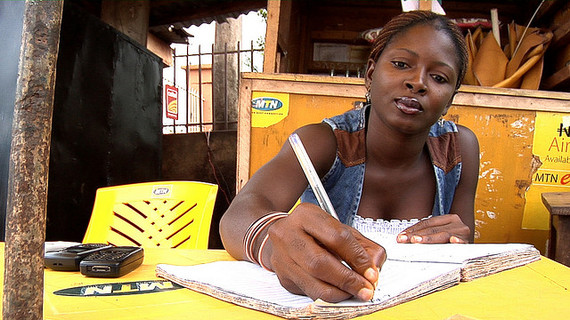Since more than 50% of small and medium-sized businesses (SMEs) worldwide lack adequate access to credit, the international community is proposing reforms that will help countries strengthen their financial infrastructure and make it easier for SMEs to borrow funds needed to operate and expand.
Closing the current gap of more than $2 trillion in SME financing is a pressing issue, vital to reaching the Sustainable Development Goals, since it's estimated that SMEs will create most of the 600 million new jobs needed over the next 15 years to absorb a burgeoning global workforce.
The World Bank Group, together with the SME Finance Forum and the G20, drafted the SME Action Plan on Financial Infrastructure on lowering barriers to SME financing, which the G20 leaders ratified last week.
The proposed reforms aim to bring countries closer to international best practices by supporting modern and efficient lending, which will enable more SMEs to access financing while lowering costs and risks to financial institutions.
The action plan focuses on three priority reform areas:
- Improving the credit reporting systems for SMEs, which will help lower the risks for lenders.
These financial market infrastructure reforms will particularly benefit smaller and younger companies who traditionally don't have an established credit profile or fixed assets, as well as women-owned SMEs, young entrepreneurs and agricultural SMEs, who often need to jump over additional hurdles to access credit.
Advances in technology (ICT) and data collection are making these reforms possible, as they've opened new approaches to accessing finance and have enabled new players to provide financial services, such as telcos, payments companies and crowdfunding. Since these innovations will continue to influence access to financial services, the action plan recommends to continue exploring their potential as part of its knowledge agenda.
The fintech industry, which is lowering costs for banks to receive information and data about clients, is providing alternative channels to reduce service delivery costs (cell phones, cards, internet), and is helping SMEs better manage their business through real-time, affordable services.
It has also helped diversify data used to determine SMEs creditworthiness and look beyond bank credit to non-bank debt (short and long term), and even non-financial data on borrowers.
Finally, ICT is improving our understanding of the role different long-term instruments play (such as guarantees, asset-backed and asset-based structures), how they're used, and what challenges they pose for SME financing.
In other words, fintech has enabled developing countries to leapfrog and create unprecedented financing products and approaches to finance.
In traditional finance, usually developed economies bring experiences to emerging markets. Fintech provides an opportunity for developed countries to learn about innovations, such as digital finance or mobile banking, from emerging economies. Indeed, in terms of digital finance, some countries are already playing a leading role.
At the World Bank Group, we play a convening role. Using traditional finance and fintech, we can create a space to bring these emerging market experiences and innovations to the fore and push regulators to embrace them. Incorporating these innovations as part of the international standard-setting best practices will help SMEs to take off and grow.
Also, we are looking to operationalize the SME Action Plan and support client countries in implementing reforms and monitoring progress.
Already, we are helping SMEs by supporting public and private credit reporting efforts in 60 emerging countries. Our Global Credit Reporting Program has facilitated over $6 billion in new financing to some 6 million retail and small business clients.
In addition, in Ghana, China and Mexico, we've worked with governments to develop appropriate legal and institutional frameworks to allow the use of movable assets as collateral for loans. In Latvia, Mauritius and Moldova, we've helped to increase the recoveries of creditors from non-performing loans which, in turn, results in more lending at lower risk premiums, as well as increased opportunities for entrepreneurs.
Financial infrastructure reforms outlined in the joint action plan will benefit G20 and non-G20 countries alike, and in partnership, could be supported in low-income developing countries.
However, we need to keep in mind that these reforms can take time. Some countries will find it easy to implement them, while others will take longer and will require more changes to adapt existing laws and systems.

